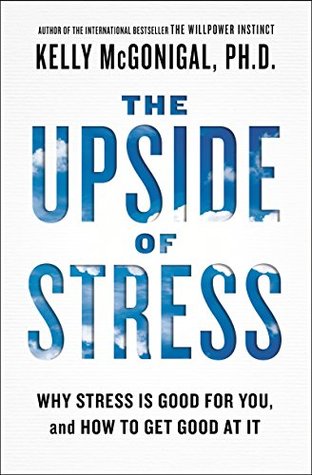More on this book
Community
Kindle Notes & Highlights
Read between
November 3, 2017 - January 5, 2018
Stress is what arises when something you care about is at stake. This definition is big enough to hold both the frustration over traffic and the grief over a loss. It includes your thoughts, emotions, and physical reactions when you’re feeling stressed, as well as how you choose to cope with situations you’d describe as stressful. This definition also highlights an important truth about stress: Stress and meaning are inextricably linked. You don’t stress out about things you don’t care about, and you can’t create a meaningful life without experiencing some stress.
Mindsets are beliefs that shape your reality, including objective physical reactions (like the strength of my arm as Crum pushed on it), and even long-term health, happiness, and success. More important, the new field of mindset science shows that a single brief intervention, designed to change how you think about something, can improve your health, happiness, and success, even years into the future.
When you face difficulties head-on, instead of trying to avoid or deny them, you build your resources for dealing with stressful experiences.
Feeling like you don’t belong can change how you interpret everything you experience.
Changing our minds can be a catalyst for all the other changes we want to make in our lives.
The first step is to acknowledge stress when you experience it. Simply allow yourself to notice the stress, including how it affects your body. The second step is to welcome the stress by recognizing that it’s a response to something you care about. Can you connect to the positive motivation behind the stress? What is at stake here, and why does it matter to you? The third step is to make use of the energy that stress gives you, instead of wasting that energy trying to
the most helpful mindset toward stress is one that is flexible, not black or white: to be able to see both sides of stress but choose to see the upside; to feel your own distress and yet also decide to focus on how that stress connects to what you care about.
“The more directly one aims to maximize pleasure and avoid pain, the more likely one is to produce instead a life bereft of depth, meaning, and community.”
She explained that you can either let your stress overwhelm and paralyze you, or you can look at how to use that stress. She taught her students how a racing heart and fast breathing are your body’s way of helping you cope with stress.
“If you want to be competitive with yourself, that’s great, have goals,” Leffler said.
“But never against someone else.” By removing competition as the main goal, the training process becomes a mindset intervention to strengthen bigger-than-self goals.
One of the biggest barriers to vicarious resilience is pity. When you pity someone, you feel sorry for their suffering but do not see their strength, and you do not see yourself in their story.


